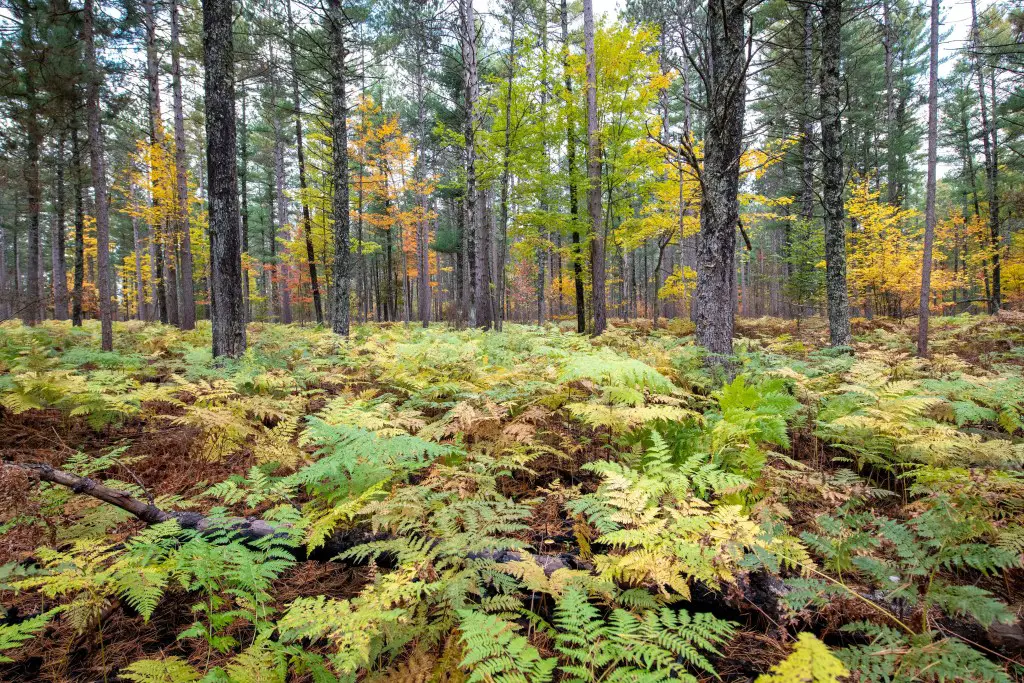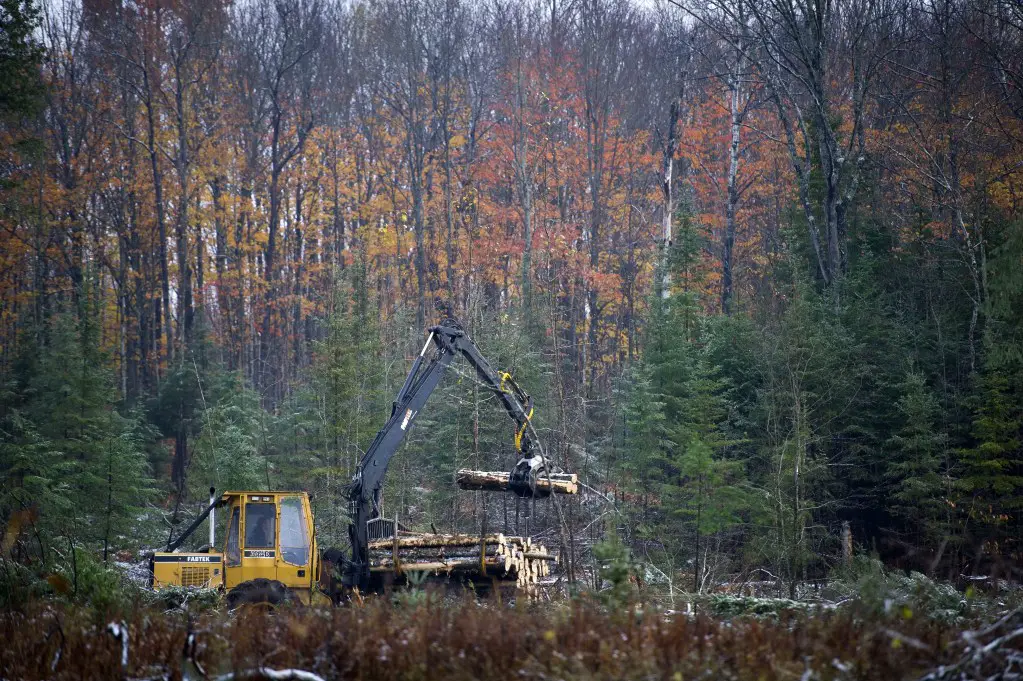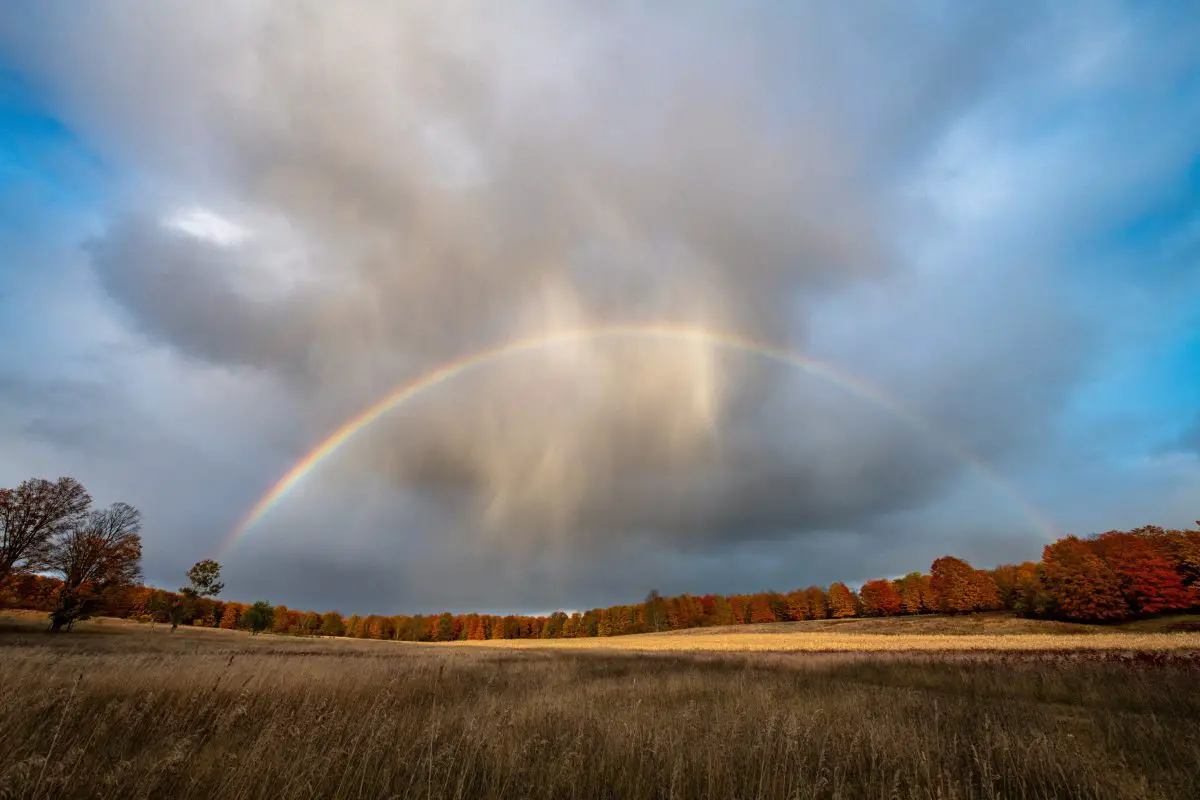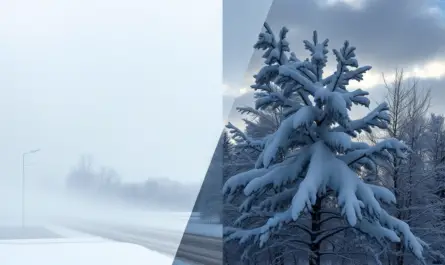The 3.9 million hectares of state-owned forest property in Michigan provide room for outside enjoyment, cleaner water, wildlife habitat, and many other benefits. A recent agreement between the Natural Resources Department in Michigan and DTE Energy, Michigan’s most prominent power supplier, will bring the nation’s first carbon credit projects into the state, helping DTE reduce its carbon footprint and add an estimated $10 million in natural resource management revenues.
The Bluesource/Michigan DNR Big Wild Forest Carbon Project is the country’s first carbon storage project for trees in state-run forests. In the northern Lower Peninsula, the pilot project offers a range of offset carbon credits derived from sustainable forest management activities on over 100,000 acres of the famous Country Forest of the Pigeon River, known as “The Big Wild.”
“Our natural resources are a core aspect of our identity as Michiganders,” said Gov. Gretchen Whitmer. “To meet our long-term commitment to decarbonization, we need to utilize innovative partnerships to increase revenues for land and climate programs. Under today’s program, we are pursuing a climate-smart forestry strategy and effectively utilizing our natural and working lands to decrease pollution and protect public lands.”
Pilot Project Takes Root In Michigan State Forests Land

In one tree, up to 48 pounds of carbon dioxide can be absorbed every year. When a tree is 40 years old, 1 ton of carbon can be stored. When these trees are utilized to produce long-lasting wood goods, they can catch or store “store” carbon in the furnishings, houses, or countless other items they absorb from the atmosphere.
A carbon loan equals one ton of the emission of carbon dioxide. Studies reveal that carbon sequestration could help reduce carbon in the atmosphere by up to 30 percent of the global effort. DTE Energy will give this offset, as DTE’s volunteer natural-gas balance program offset, to its biggest industrial gas customers, attempting to mitigate the impact of carbon emissions.
For the first ten years of the program, DTE Energy pledged to buy all carbon credits generated from the Pigeon River Country State Forest for more than 10 million dollars. In 2022 the first transfer of carbon credits to DTE begins with payments (to the state). The DNR pilot project carbon credit marketing company Bluesource will update the timeframe and size of the cash stream.
Carbon credit purchases allow DTE to meet its goal to deliver net-zero carbon emissions by 2050 to consumers with somewhat higher energy use.
“We’re proud to partner with the DNR on this innovative way to help Michigan get cleaner, faster,” said Matt Paul, president and chief operating officer at DTE Gas. “These offsets will be made available to our customers that are seeking impactful ways to reduce their carbon footprint and join DTE on its journey to net-zero greenhouse gas emissions by 2050. In addition, the Pigeon River Country State Forest project is an excellent complement to the 24,000 acres of Michigan forest we are already protecting through Natural Gas Balance, our voluntary program that helps residential and small business gas customers reduce their carbon footprint.”
Carbon Credit Project Supports Forests and Wildlife
Beyond the air-quality benefits – Michigan’s forests can substantially reduce the amount of carbon dioxide that has been released to the environment, which cuts air pollution and helps mitigate the effects of climate change – the carbon-credits project will allow the DNR to credit crucial dollars to funding sources that support the Pigeon River Country State Forest.
Revenue generated from these carbon credit purchases will be directed to the state’s Forest Development Fund and the Fish and Game Fund for efforts that could include tree planting, forest infrastructure (such as roads, bridges, and culverts), wildlife habitat improvements, recreation projects and more.
Supports Sustainable Michigan State Forest Management
The environmental benefit of the project stems from the state’s ongoing commitment to sustainable forest management while ensuring more trees will stay in place long term to enhance the carbon sequestration of the Pigeon River forest.
“We manage Michigan’s state forests with a firm commitment to the health and sustainability of this incredible resource, as well as to the people who enjoy the forests and the fish and wildlife that rely on them,” said Michigan Department of Natural Resources Director Dan Eichinger. “We’re excited to see this thoughtfully leveraged use of our state’s diverse forest land result in a program that works on so many levels.”
Carbon Credits Project Managed By Bluesource

Timber Harvest – Michigan Department of Natural Resources
Bluesource, the company selected last fall to manage the DNR’s carbon credits development and marketing program, is a Salt Lake City firm that has pioneered creative solutions to climate risk since 2001.
“Bluesource projects have reduced hundreds of millions of tons of greenhouse gases over our 20-year history, and we can’t scale without the climate finance provided by progressive companies like DTE,” said Bluesource Vice President of Environmental Markets Ben Massie. “Their long-term investment in credits from Michigan DNR’s Big Wild Forest Carbon Project gives DTE customers an impactful way to reduce their carbon footprint while at the same time driving sustainable forest management and value within the state.
“I hope other states and public lands follow the DNR’s lead and recognize that a change to progressive forest management, intending to promote carbon stocking, not only nets revenue but allows for continued recreation, boosts the local economy, conserves water resources, and provides continuing educational opportunities,” added Massie.
Learn more about how and why the DNR takes care of state forests at Michigan.gov/Forestry.



